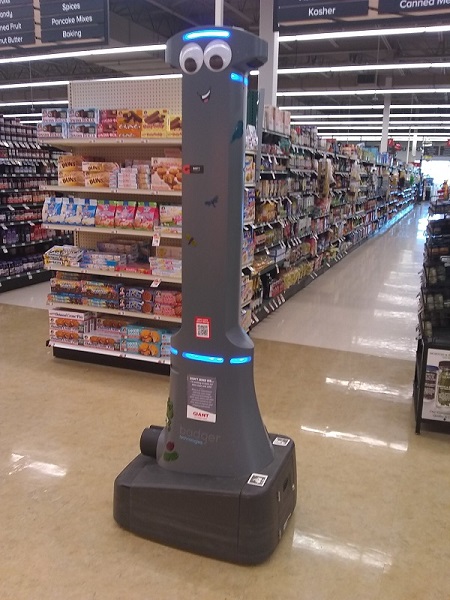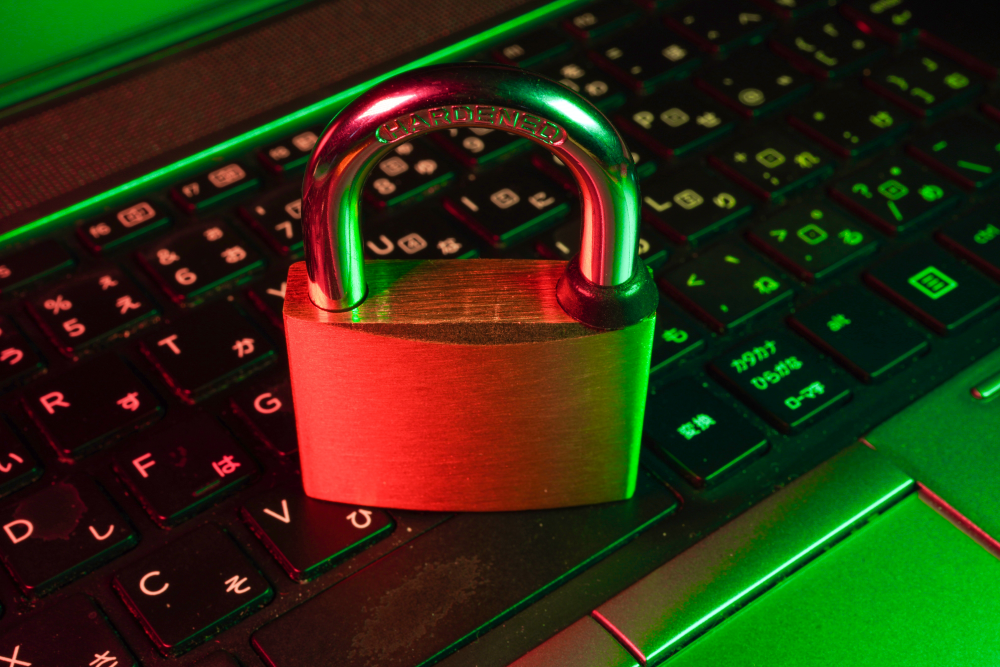A Personal Story About Personal Privacy

It’s Time to Think About What is Privacy and Why Is Privacy Important
For me, it all started four years ago when I was at my doctor’s office.
I was about to experience an unsettling realization. And it had nothing to do with my health.
What Do Muffins Have to Do with Personal Privacy?
So, there I was waiting in my doctor’s office at Penn Med—a popular medical facility in PA.
My husband was waiting in the cafeteria. He purchased coffee and a banana nut muffin to pass the time. He even texted me about his tasty acquisition.
Now, I’m not particularly a fan of bananas or nuts, but I love muffins. So, in response to his text, I replied, “Lucky you!” hoping to enhance his muffin experience. I thought it sounded better than, “Too bad it’s not blueberry!”
My doctor soon arrived.
During my visit, I mentioned that I still had eczema on my hands. We talked a little about eczema and my doctor prescribed a topical cream.
After my check-up, she directed me to sit in the hall; a nurse would come by with my yearly flu shot. To pass the time, I started scrolling through my Google feed.
And that’s when it happened!
What Did I See in My Google Feed?
Articles all about eczema!
I wondered, had my private conversation with my doctor somehow become public?
I reluctantly chalked it up to coincidence.
Loss of Privacy—Real or Imagined?
But the next day, I couldn’t brush aside what happened as coincidence.
Once again, I was mindlessly browsing my smartphone. There, leading my Google feed, were several articles on, you guessed it, muffins!
One article was all about baking delicious banana nut muffins. The others focused on baking banana muffins.
I wanted to say, “Hey, Google. I was only kidding. I don’t really like banana nut muffins.” But what would be the point? After all, I was alone, and no one was listening.
Wrong!
At that moment, my belief in personal privacy was shattered. If I no longer had privacy in my doctor’s office, was my privacy maintained anywhere? I had kind of enjoyed it and took it for granted.
I thought it would always be there.
Hey, HIPPA! I hope you’re listening too.
What is Privacy in American Culture
The US Constitution grants us important rights regarding privacy.
The Fourth Amendment of the US Constitution states:
“The right of the people to be secure in their persons, houses, papers, and effects, against unreasonable searches and seizures, shall not be violated, and no Warrants shall issue, but upon probable cause, supported by Oath or affirmation, and particularly describing the place to be searched, and the persons or things to be seized.”
I always thought that settled it. But there’s a lot more.
In June 2018, the Supreme Court decided that the Fourth Amendment applies to cell phone tracking. The way this decision applies to other digital information is still being debated by legal scholars.
Whether the Constitution protects my privacy regarding muffin affinity is yet to be clarified.
The USA Patriot Act and Privacy
Other privacy issues are up for debate. Many involve the USA Patriot Act that was enacted after the horrific attack on New York City’s Twin Towers in 2001.
The official title of the Patriot Act is “Uniting and Strengthening America by Providing Appropriate Tools Required to Intercept and Obstruct Terrorism (USA PATRIOT) Act of 2001.” You can download the USA PATRIOT ACT here. It allows the government to target citizens not under government investigation.

Before the Patriot Act, the FBI could only conduct such searches if they had evidence the person was “an agent of a foreign power.” Now a search can be conducted on anyone. Even if a search is simply based on a book someone checks out of a public library.
Critics of the Patriot Act severely criticize it for weakening the privacy rights of individuals. They say it allows government access without probable cause, or court documents.
It is further argued that Section 215 of the Act gives the FBI the right to demand personal records from anyone. This includes getting client and customer records from internet service providers, doctors, universities, and more.
And last, these searches don’t need to be reported to the individual in question, making it impossible for them to seek protection under their Fourth Amendment rights. They don’t even know it’s happening.
The National Security Agency (NSA)
This agency came to be on November 4, 1952. The NSA isn’t part of a military organization. Rather, it’s part of the intelligence community that’s administered by the Department of Defense.
Spurred on by The Patriot Act, by 2018, the NSA had acquired over 600 million phone calls and texts.
Are you in there?
Are you sure?
Phones and Data Privacy
Today, you can read many articles about phone and data privacy. Some articles insist that phones have to listen to you; they must be ever vigilant should you utter a voice command. Also, voice-assisted apps must keep an ear out just in case you’re talking to them.
For those who are interested, there are also articles that detail the technical gymnastics to go through to turn the listening or tracking feature off on your phone.
Online Behavior Advertising
Phones listening to you and tracking your location, and different technologies paying attention to your searches, help build your online data profile. For a fee, companies can use this profile for advertising.
Online behavior advertising is a type of advertising that selects relevant adds based on web-browsing behavior. It makes it possible to deliver target adds to exact populations. Some call it a win/win situation.
It’s argued that if your favorite retailer is having a 50% summer clearance, you will probably be happy to learn about it.
Phones can legally listen to you when you give your consent by accepting terms and conditions during updates or downloads. But even when consent isn’t granted, spyware or other viruses can collect data illegally.
Why is This Blogger Thinking About Data Privacy?
So, why am I writing about privacy today? It all has to do with yesterday’s trip to the grocery store.
My husband and I were doing some fast grocery shopping. Giant Food Store shoppers, and possibly others, have met Marty. Marty is the grocery’s robot who tirelessly travels up and down the aisles.
I encounter Marty often, and I have to admit he’s quite a nice guy.

Marty has large googly eyes. Maybe this is why I took an immediate liking to him. Who doesn’t love a cute robot?
Marty has never run into me or my cart. In fact, he’s very polite, always yielding right of way. He tries to be as unobtrusive as possible as he goes about his robot business.
Well yesterday, Marty came to visit us at the checkout counter. He briefly lingered at the end of our check-out aisle.
Why was he visiting? Were we blocking his charging station? Was he tired and needed a rest? Did he find a reportable hazard on the floor like a broken jar of applesauce or a bottle cap? We didn’t know.
I asked the checkout clerk why Marty was hanging out near us, but he didn’t know either. He didn’t seem at all concerned and went about ringing up our groceries.
No one has quite figured out what Marty’s function truly is. Giant says his function is to find spills and hazards on the floor. I say that Giant made an enormous investment to find little spills. After all, Marty can’t clean spills; he just reports them.
No offense Marty, but what exactly is your purpose in life? Many shoppers want to know.
I decided to ask the 20-something clerk if he knew what Marty does for the store. Maybe some new information had been made public since I last checked online.
“Do you have any idea what Marty is supposed to do?” I asked. “Do you think he listens?”
The clerk simply replied, “No.”
He had little or no interest in Marty. Like it’s perfectly normal to have a googly-eyed robot loitering at your workstation.
So, I took the conversation a step further.
“Does it bother you that your phone listens to you when you’re not using it?
Again, his reply was a nonchalant, “No.”
Maybe the clerk didn’t feel like talking. Or he just found me to be annoying. (No, not me!)
But his response left me wondering—and even more concerned.
Is Privacy an Outdated Concept?
A study was conducted on “Perceptions and concerns on data privacy among mobile users in the United States as of April 2019, by generation.” You can view here this study on age and data privacy concerns.
Two concerning takeaways from the study are:
- Baby Boomers (individuals born between 1946 and 1964) are 73% somewhat or very concerned about privacy, with Generation Z (individuals born between 1996 and 2010) being 53% somewhat or very concerned about privacy
- Baby Boomers are 18% not at all or slightly concerned about privacy, with Generation Z being 29% not at all or slightly concerned about privacy
Loss of privacy it is an issue that everyone should seriously think about. Once privacy is lost, it’s impossible to regain.
Why Is Privacy Important?
Privacy is important because:
- It allows us to choose who we share our thoughts and feelings with
- It allows us to keep health matters personal
- It allows us to keep finances personal
- It can help protect our physical safety
- It allows us to be left alone, free of uninvited influence, criticism, or action
Can freedom exist without privacy? I don’t think so.
What do you think?
If you need a blog writer for your business website, contact me at laura.eltaon@aol.com. Or visit my business website and online portfolio at https://lefreelancewriter.com.
